



In her new book In Free Fall: My Experiments with Living (Speaking Tiger), dancer, choreographer and activist — and co-director of the Ahmedabad-based Darpana Academy of Performing Arts — Mallika Sarabhai writes about acutely defenceless moments of her life with piercing directness and candour. Her book isn’t as much about her art, a practice in dance spanning several decades which her mother Mrinalini Sarabhai initiated her into, or her touring with Peter Brook’s theatre group playing Draupadi in the multi-ethnic, multi-cultural Mahabharata (1989). She defines herself through the narrow but highly eloquent lens of the mind-body-emotion matrix. As the title suggests, her experiments with living take her into intense suffering and, more often than not, lifts her out of intense suffering. This is the latest in a series of books that has come out this year that helps unlock ways to heal from pent-up trauma, disease and isolation using scientific data and research as well as ancient Eastern systems such as Ayurveda and yoga.
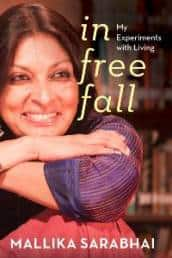 Sarabhai’s “30-year-old struggle with being thin”, which includes bulimia and starvation (a diet of orange juice and complain for a long period of time gradually drained her of energy and will), addictions such as smoking and how she could let it go through hypnosis, the cracks in her closest relationships including debilitating grief after losing first her father, scientist Vikram Sarabhai, and then her mother, her fascination with pranic healing, panchkarma, metal bracelets, colour therapy and her finding effective elixirs in yoga and Ayurveda — the book is a tell-all chronicle about how, all her life, she has been on a self-caring, self-sustaining mission of “future-proofing” her body and mind. She writes with immense clarity, with an ability to look at her health issues and addictions without any prism of self-pity. It can be exhausting to see her fight, go still, retreat, fight some more and come out triumphant — from difficult pregnancies to dealing with a probable tumour in her brain to suffering debilitating pain alone during the pandemic years.
Sarabhai’s “30-year-old struggle with being thin”, which includes bulimia and starvation (a diet of orange juice and complain for a long period of time gradually drained her of energy and will), addictions such as smoking and how she could let it go through hypnosis, the cracks in her closest relationships including debilitating grief after losing first her father, scientist Vikram Sarabhai, and then her mother, her fascination with pranic healing, panchkarma, metal bracelets, colour therapy and her finding effective elixirs in yoga and Ayurveda — the book is a tell-all chronicle about how, all her life, she has been on a self-caring, self-sustaining mission of “future-proofing” her body and mind. She writes with immense clarity, with an ability to look at her health issues and addictions without any prism of self-pity. It can be exhausting to see her fight, go still, retreat, fight some more and come out triumphant — from difficult pregnancies to dealing with a probable tumour in her brain to suffering debilitating pain alone during the pandemic years.
But as with four other books of 2022, all incidentally written by women — How We Heal: Uncover Your Power and Set Yourself Free by Alexandra Elle, coming out in November, Beauty Unbottled by Kavita Khosa, Move The Body, Heal The Mind by Jennifer Heisz, and most notably, Who Is Wellness For? An Examination of Wellness Culture and Who It Leaves Behind by Fariha Róisín — Sarabhai’s narrative points to the fact that wellness as a healed but always-in-progress state of being is most effective when it goes beyond individual goals, when communities and societies around the individual are also in sync with its principles.
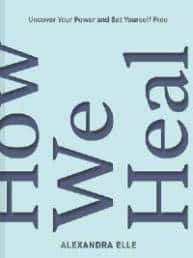
Alex Elle is a 33-year-old Black American writer, teacher, and host of the podcast Hey Girl has many books. Her last book, After the Rain (2020) was about the fight to democratise wellness. Her forthcoming book, How We Heal weaves together themes like mindfulness, inner-child work, boundary setting and presents the reader with easy-to-follow practices that have changed her life and the lives of the thousands of people she has taught. Complementing the practices are powerful insights from Elle's own journey of self-discovery using writing to heal. In her book Beauty Unbottled, Kavita Khosa, the founder and CEO of Pureearth, an Ayurvedic skincare and wellness brand, distills several recipes gathered and customised over years of research into Ayurveda. She left a career in Wall Street and embarked on a journey through the Himalayan ecosystem, partnering with women’s micro-credit groups about a decade ago (see interview below).
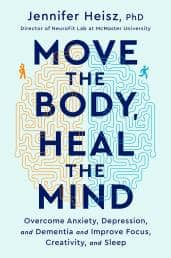
Heisz, the director of the NeuroFit Lab at McMaster University in Hamilton, Ontario, studies the interplay of physical and emotional health and how exercise helps stave off or treat depression, anxiety, stress and other mental health conditions, and her latest book, Move the Body, Heal the Mind, encapsulates various aspects of her research into the connection with physical agility and the brain. Throughout her work too, the contribution of a culture of fitness to individuals successfully adopting and sustaining fitness goals is an underlying pre-condition for overall wellness.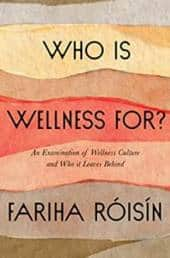 The most political of them is Róisín’s Who Is Wellness For? She's a multidisciplinary artist born in Ontario, Canada, raised in Sydney, Australia, and based in Los Angeles, California. True to her multicultural lineage and upbringing, and as a Muslim queer Bangladeshi, Róisín is interested in margins, liminality and otherness, and her work as an author and artist on wellness, contemporary Islam, and queer identities can be seen as an intersection of her various identities. Her book is divided into essays: "The Mind", in which she explores the art of meditation and the importance of intuition; in "The Body", she delves into inner traumas, detailing her own experience with fat-phobia, gender dysmorphia and chronic illness; in "Self-Care", she argues against toxic industrial complexes that profits at the expense of humanity’s best interests; and in "Justice", she discovers new pathways to wellness. Moving seamlessly between the self and the surrounding community, she explores wellness on multiple levels — mental and physical, personal and global, micro and macro. “Inherently, everything is connected,” she writes. The premise of all her work is this: There’s a sacredness to the mundane, and we are all part of that divine circle.
The most political of them is Róisín’s Who Is Wellness For? She's a multidisciplinary artist born in Ontario, Canada, raised in Sydney, Australia, and based in Los Angeles, California. True to her multicultural lineage and upbringing, and as a Muslim queer Bangladeshi, Róisín is interested in margins, liminality and otherness, and her work as an author and artist on wellness, contemporary Islam, and queer identities can be seen as an intersection of her various identities. Her book is divided into essays: "The Mind", in which she explores the art of meditation and the importance of intuition; in "The Body", she delves into inner traumas, detailing her own experience with fat-phobia, gender dysmorphia and chronic illness; in "Self-Care", she argues against toxic industrial complexes that profits at the expense of humanity’s best interests; and in "Justice", she discovers new pathways to wellness. Moving seamlessly between the self and the surrounding community, she explores wellness on multiple levels — mental and physical, personal and global, micro and macro. “Inherently, everything is connected,” she writes. The premise of all her work is this: There’s a sacredness to the mundane, and we are all part of that divine circle.
If tech frontiers and how they could challenge and transform our lives defined most of the 2000s for humanity, the new goalposts or aspirational paradigms are wellness and healing — especially after the gruelling pandemic years. Wellness as an industry has had staggering growth in the past five to six years. According to the 2022 estimates of the Florida, US-based Global Wellness Institute, one of the largest non-profit organisations working towards spreading wellness across the world, the wellness industry is valued at $4.5 trillion and is continuing to grow at a historic rate. The Federation of Indian Chambers of Commerce and Industry (FICCI) estimates the Indian wellness industry at Rs490 billion in the findings of a study released last year. Its findings say that the rise in disposable incomes and entry of private-sector investors in the wellness market, are the chief drivers of this trend, but the most important reason why the wellness market in India is witnessing such a meteoric rise is due to a shift in people’s attitudes towards health.
It is a bewilderingly exploding market, where influencers are neuroscientists and traditional gurus as well as young practitioners who speak from personal experiences. It’s a dizzying world of advice, debate, refutation, identity politics and tall claims. Measured, in-depth narratives based on rigorous research and personal experience — like the five notable books of this year — take helicopter views of this world and makes us understand that it is impossible to be well just by fortifying our own kitchens and practices. It’s when we step outside of individual goals and see ourselves as being connected to the larger processes of how our communities and societies work, that true healing occurs. It’s that moment in the history of wellness which places the individual right at the centre of societal transformation.
The challenges of Ayurveda
Ayurveda evangelist and author Khosa runs Purearth, a Hong Kong-based Ayurvedic skincare and wellness brand. The organic cosmetics' formulator's book has detailed information and manuals on making your own facials, skin foods, the holy grail of plant-based make-up and rituals for inner beauty. In the following interview, Khosa explains why Ayurveda is yet to get the recognition it deserves. Edited excerpts:
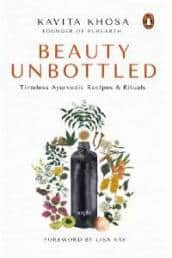
What in your opinion comes in the way of Ayurveda getting more recognition as a viable and dependable science or form of healing? Is it because there are no structured data or proper clinical studies?
For centuries, India lived under foreign rule is some form or the other and colonialism. It is most unfortunate that indigenous knowledge and ancient wisdom was scoffed at and took a back seat. Charlatans and quack Ayurveda practitioners did not help either. As modern and Western medicine became more mainstream we lost touch with our “dharohar”, the legacy of Ayurveda. We became totally reliant on drug store brands for common ailments like coughs, colds, jaundice, flu, allergies, aches and pains. Not to forget drugs to control stress, insomnia and what not. To step out of the shadows of centuries old brainwashing will take time.
Aren’t traditional and ancient forms of medicines more in vogue around the world now?
Yes, we are slowly but surely seeing a genuine increasing awareness and interest in Ayurveda by a tired, fast food, fast fashion, fast consuming society. The time has now come for Ayurveda to take centre stage. Ayurveda is, was and always will be of relevance. It is timeless and time-honoured.
Modern science is only now corroborating and validating what our sages and seers of yore — Sushruta, Charaka, Vagbhata and others — declared millennia ago. The Atharva Veda (one of the four great books of knowledge) reveres five medicinal plants as superfoods. Scientific research and studies on turmeric, neem, cannabis, gotu kola, giloy, amla, saffron, tulsi, among others, show astounding results.
Is there anything you are working on or studying in Ayurveda that you would like to share?
My team of chemists and I concluded a study on the effects of Rosehip seed oil and Seabuckthorn oil on pigmentation and UV sun damage and acne, respectively. The marked, visible improvement and reports from the volunteers in such a short span of time is promising and exciting. We need more research, funding and support from the government to promote Ayurveda so that it can flourish and thrive with its own place of importance alongside modern medicine.
What are the three most powerful or miraculous Ayurveda ingredients in beauty and wellness?
Cannabis, amlaki or amla or the Indian gooseberry, and ghee.
Who do you want your book to reach out to and why?
Are you tired of being told what to buy and what to use and them not working out? Do you want to consume consciously so that you leave a lighter footprint on this planet? Do you want to have control over what you consume and how you consume? If you want healthy happy skin and hair and want to start in your kitchen but don’t know how — this book is for you. It teaches you to take back charge of their own body and health by making an informed choice to live in harmony with nature — this book is for you. If you want to learn the basics of Ayurveda, then get this book.
Discover the latest Business News, Sensex, and Nifty updates. Obtain Personal Finance insights, tax queries, and expert opinions on Moneycontrol or download the Moneycontrol App to stay updated!
Find the best of Al News in one place, specially curated for you every weekend.
Stay on top of the latest tech trends and biggest startup news.